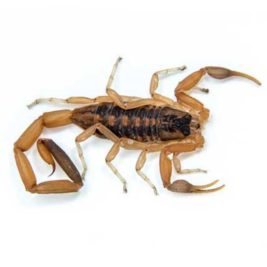When the long days of summer draw to a close and the cooler weather of fall approaches, so do fall invading pests. At Western Exterminator we realize that we all have some kind of bug that plagues us, and to understand why fall pest control is so important, you first have to look at the problem. And it’s not pretty.
Mice and rats can get into your walls, chew on wires, and nibble on sheet rock. So, besides being disease carriers that can run through your garage, pantry and food drawers, they can also create problems with your electric, phone, internet, and television wiring. Rodent control discourages and eliminates mice and rats from your home.
Fall invaders also bring viruses and disease. Cockroaches can passively transport microbes on their body surfaces including pathogens that are potentially dangerous to humans. Cockroaches have many negative consequences for human health because certain proteins (called allergens) found in cockroach feces, saliva and body parts can cause allergic reactions or trigger asthma symptoms, especially in children.
Cockroaches will eat almost any organic matter no matter how rancid. Once inside the home, they will seek out food scraps, unsealed food containers, sugar and grease deposits, pet food, rancid meat, glue and even bookbindings. If you see a clump of pepper-like specs in your kitchen cupboards, it is likely cockroach feces marking their courtship and nearby nesting territory. Cockroach control can rid your home of these disease producing pests.
In fall, bugs and rodents are looking for a place to hibernate or overwinter and that’s why fall pest control is so important. A pest professional can treat your property and set up devices that watch for harmful insects, like cockroaches, scorpions and spiders. Monitoring insect activity can help to prevent many bugs from entering your home.
Fall Pest Prevention Tips:
- Screen attic vents and openings to chimneys, and any other areas where homes may be open to the outdoors, like mail slots and animal doors.
- Keep basements, attics and crawl spaces well ventilated and dry. Pests are attracted to areas of moisture, something they need to survive. Using dehumidifiers in basements and garages will help keep these areas dry.
- Seal cracks and crevices on the outside of the home using caulk and steel wool. Pay close attention to where utility pipes enter the structure. Some rodents can fit through a hole the size of a dime.
- Keep kitchen counters clean, store food in airtight containers and dispose of garbage regularly in sealed receptacles. Crumbs and a buildup of garbage are attractive to pests scrounging for food. It is recommended to clean up after each meal and to properly close garbage cans when they are stored in the home or garage.
- Replace weather-stripping and repair loose mortar around the foundation and windows. These are easy ways to keep not only pests, but also cold air out of the house.
- Store firewood at least 20 feet away from the house and keep shrubbery well trimmed. Removing areas where pests can hide near your home can reduce the chance of them finding a way inside.
- Install door sweeps and repair damaged screens. Torn window screens and cracks under doors are an ideal entry point for household pests. When you open the window, you could be letting in more than just fresh air.
- Inspect items such as boxes of decorations, package deliveries, and grocery bags before bringing them indoors. Pests can find creative ways to get inside a home. Shake out or inspect anything that has been left or stored outside.
- Avoid leaving pets’ food dishes out for long periods of time. Pests don’t discriminate between people food and cat food. Pet dishes that have been left sitting out are enticing for all kinds of insects and rodents.
- Have a proper outdoor drainage system. Installing gutters or repairing an existing system will help draw water and moisture away from your home, preventing any leaks or build up that might attract pests.
If you live in Las Vegas or Henderson, you don’t have to live in fear of bugs and rodents. Proper fall maintenance can keep your home and your family safe, and bug free. Don’t make the common mistake of stopping pest services during this time of year, a mistake that could easily lead to more serious pest problems. To learn more about protecting your home and family from pests year round, contact us today at 702-385-1269.

 Baby, it’s cold outside! As the temperatures drop below freezing in the
Baby, it’s cold outside! As the temperatures drop below freezing in the